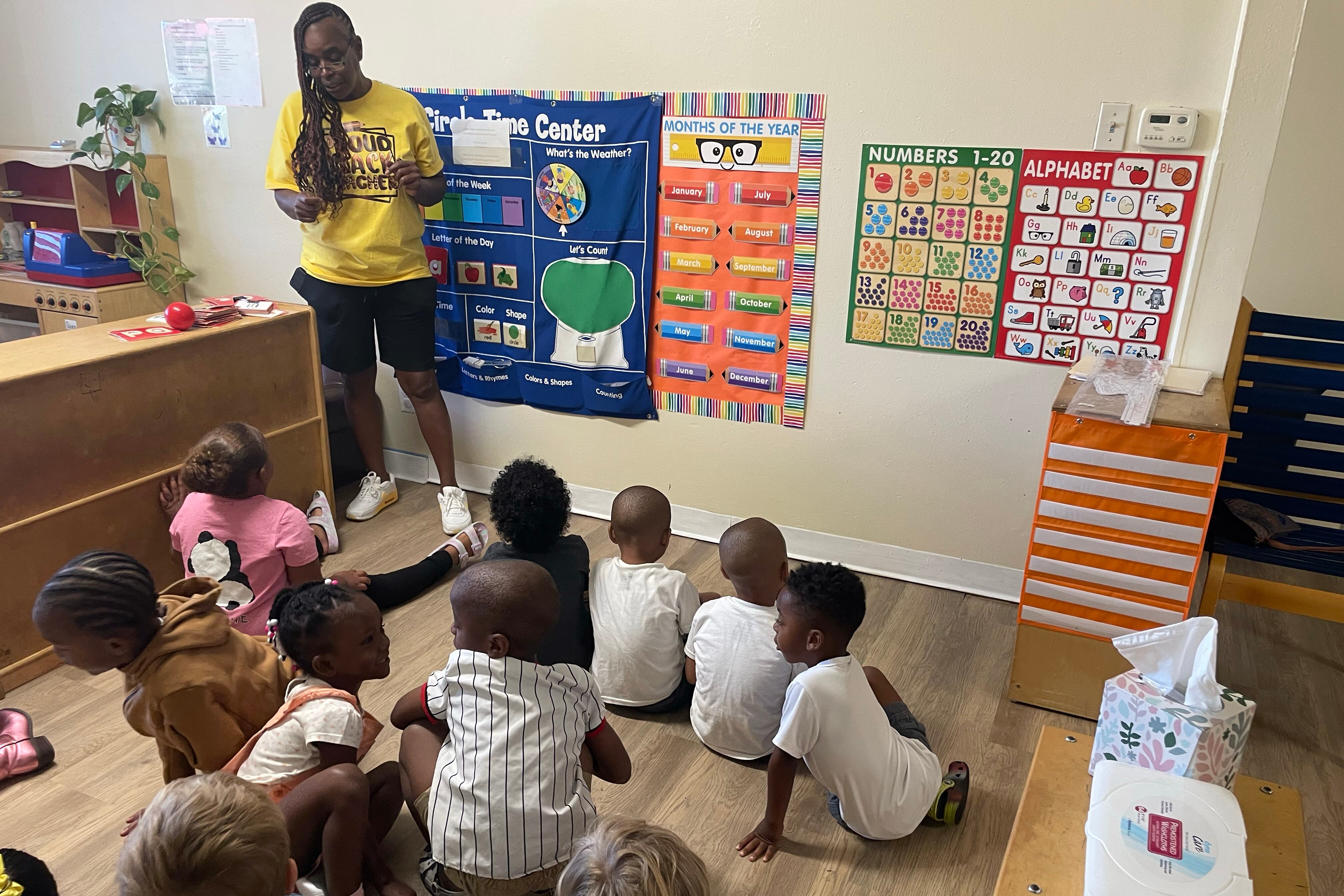Colorado officials leading the state’s new universal preschool program originally planned to ban religious lessons and activities during state-funded class time. Not anymore.
In the latest round of proposed state rules posted publicly on Wednesday, they have removed an explicit ban on religious instruction during universal preschool hours. The rules, which would take effect next summer, are set to be considered by a state advisory committee on Jan. 11 and adopted in February.
The new draft rules mark the latest in a series of flip-flops by state officials on the subject of religious education in its new $322 million preschool program. The state’s shifting approach stems partly from the program’s rushed rollout, and partly from a new legal landscape shaped by recent U.S. Supreme Court’s decisions permitting the use of public funds for religious education.
Practically speaking, the state’s decision to remove the ban on religious instruction could attract more faith-based preschools to the universal preschool program, which provides tuition-free classes to more than 60% of the state’s 4-year-olds this year. Currently, there are 40 faith-based preschools among more than 1,900 preschools in the program. Because of mixed messages about whether religious instruction was allowed, some faith-based preschools may have decided not to participate this year.
State officials declined to comment Thursday about why they eliminated the ban on religious instruction in the proposed preschool rules. Ian McKenzie, a spokesman for the Colorado Department of Early Childhood, said the department will comment following the conclusion of a trial in a federal lawsuit brought by two Catholic preschools challenging the universal preschool program’s nondiscrimination rules.
“We’re just letting the trial finish before any comments on any of its content,” he said Thursday.
The trial centers not on religious instruction, but on whether religious preschools in the universal preschool program have to accept students from LGBTQ families. It began Tuesday and is expected to finish late this week or early next week.
Colorado always planned to offer universal preschool classes in a variety of settings, including public school classrooms, private child care centers, and faith-based preschools. They never planned to let faith-based preschools teach religion during state-funded classes.
But state officials at the early childhood department ran out of time to make rules on the topic before the program launched in August. There was a widely distributed fact sheet that talked about religious instruction being prohibited, but no official rules. That allowed faith-based preschools participating in the program to incorporate religious stories, songs, and prayers however they wished this year.
In October, the state proposed rules that would do what officials had intended all along: ban religious instruction in universal preschool. But in December, the conservative group Advance Colorado threatened to sue if the state followed through with the proposed ban. With the state’s latest draft rules, it appears the state has shelved its plan for now.
Faith-based preschools participating in the universal program differ widely in how much religion they incorporate into their preschool classes.
Leaders at Grand Junction’s Landmark Preschool, which is housed in a Baptist church, say religion is incorporated into everything they do, including math and reading. One morning last fall, a class of 4-year-old preschoolers recited Bible verses with their teacher.
“OK, here we go,” said teacher Corrie Haynes to the 13 children sitting in front of her on a green rug. “Philippians 4:19. My God shall supply all your needs,” they said together. Next, they sang songs about God and talked about sin and forgiveness.
At King Baptist Child Development Center and Preschool in Denver, preschool classes look much different. The school, which is owned by the adjacent church, uses a secular curriculum and doesn’t incorporate religious content during the school day.
Telaya Purchase, assistant director of the center, said during an interview with Chalkbeat earlier this school year that children can participate in what’s called a devotional before school starts at 9 a.m. That includes the Pledge of Allegiance, the Lord’s Prayer, and the song “My Country ‘Tis of Thee.” She also said children say grace at meals, but can skip it if they choose.
Ann Schimke is a senior reporter at Chalkbeat, covering early childhood issues and early literacy. Contact Ann at aschimke@chalkbeat.org.






